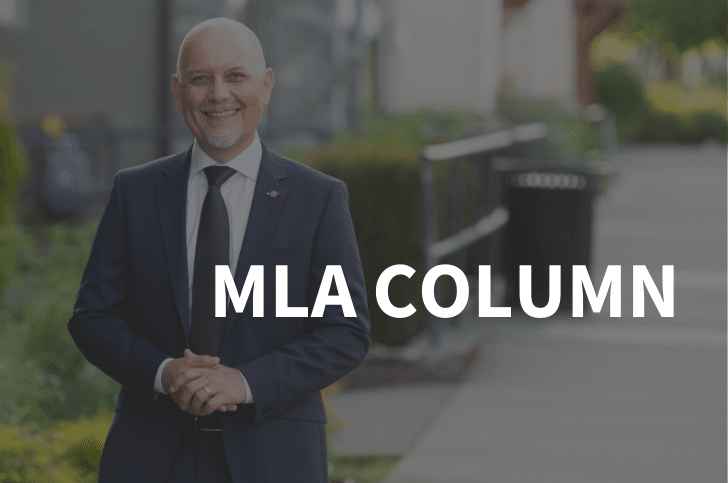As I look ahead to the next legislative session, the political landscape has changed with the emergence of the BC Conservatives as an official party in the British Columbia Legislative Assembly. However, many of the issues remain, and are lacking substantive solutions.
This summer has been another season of extremes in British Columbia exposing the real threat of the climate crisis. Severe drought has set in across the province, and 2023 set the record as the most active and destructive wildfire season in the history of the province, pushing the capacity of our services, and the patience of British Columbians to the limit.
At the same time, the social fabric we have relied on for decades is stretched to the breaking point.
The chronic lack of primary health care continues. The Saanich Peninsula Hospital emergency room has been forced to close overnight indefinitely because of a lack of doctors, and regional surgical units are shuttered. Gulf Island health care societies and paramedic services are pushed to meet the demands of growing populations.
Housing remains a primary concern in communities across Saanich North and the Islands. Purchase prices have dramatically increased in recent months and the cost to rent is unsustainably consuming people’s budgets. Inflationary pressures have both renters and their landlords coming to my constituency office seeking relief. The province is promising action to increase housing supply that they say will release the pressure.
Since 2016, more than 12,000 British Columbians have died from a poisoned illicit drug supply (six British Columbians per day). While the province has pursued decriminalization and safe supply policies in an effort to reduce the number of deaths, they’ve failed to provide safe, supervised consumption sites, meaning vulnerable people are pushed further to the margins.
As the summer progressed, we heard from the provincial government that the solutions to these problems would be coming in the fall session. With a short six-week session I am preparing for an incredibly busy sprint through critically important policy changes.
Too often governments focus on the symptoms, reluctant to address the interconnectedness of the issues we face. The connection points between our concurrent crises are complex and interwoven; however, in identifying and responding to these interconnections we will develop more comprehensive and sustainable solutions.
If we increase housing supply how does that impact our overwhelmed health-care system, and if we don’t find adequate, safe housing then how are we preparing our social services to deal with growing numbers of unhoused, isolated, lonely, people? How does that impact the public education system in our communities?
While the fracturing of the BC United caucus reflects the breadth of political ideas and philosophies in our province, we are all connected to the same governing institutions, province, and community. Instead of focusing on how we can politically destroy each other, elected officials need to be bringing our ideas and philosophies to the table to improve the outcomes for our constituents.
With the next provincial election one year away, I am sure all the political parties will be eager to demonstrate the unique ideas they have for governing British Columbia, and to drive the wedge deeper. However, what we need is leadership that values differences of opinion, embraces them, and does the hard work of building a resilient consensus across the political and cultural diversity in British Columbia.
Adam Olsen is the MLA for Saanich North and the Islands.
This column was originally published on September 24, 2023 in the Peninsula News Review.


0 Comments